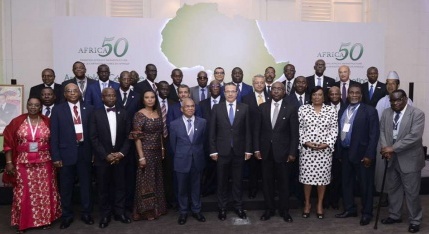By Khalifa Hemed
Published April 25, 2020
 Although the number of older people in Rwanda is set to increase threefold over the next 30 years, so many of the country’s policymakers claim that the ‘future is youth’.
Although the number of older people in Rwanda is set to increase threefold over the next 30 years, so many of the country’s policymakers claim that the ‘future is youth’.
Surprise!
RELATED: Ghost Intervenes as Kenyan Thespians Fight
Although a study by the University of Birmingham on the status of senior citizens or the elderly shows that the number of people over the age of 65 years will outnumber that of those under 18 years in the world by 2050 yet Youth had been the theme of the Commonwealth Heads of Government Meeting (CHOGM) that had been scheduled for June 2020 in Kigali before it was postponed due to the COVID-19 pandemic.
What!
RELATED: Music Awards Desecrate Africa’s Temples of Creativity
“Our study explores the needs of older people to identify how a better-equipped Christian church might work with partners to fulfil those needs. However, elders’ needs are greater than expected and traditional approaches to meeting them won’t be enough on their own.” says Francis Davis, Professor of Communities & Public Policy at the University of Birmingham who leads the research that was commissioned by a Christian charity called Tearfund.
 The major findings of the study titled, Ageing in Rwanda – Challenges and Opportunities for Church, State and Nation, show:
The major findings of the study titled, Ageing in Rwanda – Challenges and Opportunities for Church, State and Nation, show:
- ·Profound vulnerability and invisibility around the needs of older people
- Very challenging mental health gaps, trauma and stigma affecting older people
- Gaps in social protection and health policy and WHO advice in regards to older people, despite Rwandan welfare successes
- Significant faith-based good practice with a huge critical mass
- Gaps in the churches’ understanding of older people and their consequent response
- Possible weaknesses in the traction of Tearfund’s approaches when it comes to inclusion of older people
- Local elder abuse and safeguarding risks within churches, and wider NGO safeguarding risks, and
- Gaps in development of relevant safeguarding policies and codes of conduct in the wider NGO sector when it comes to the distinctive needs of older people.
The study calls upon the Government of Rwanda to investigate how authorities can honour and support older people who, despite making a valuable contribution to society across their lifetimes – face intense poverty in old age due to lack of water, food and health care.
RELATED: Why that Tomato Costs You an Arm and a Leg
Saying senior citizens face growing old with severe mental health challenges, loneliness and dislocation of rapid urbanisation, the study reveals that they also face financial and other abuse from neighbours and some rogue parts of the churches they attend, Rwanda’s traditional landscape of care by the extended family having been eroded by the Genocide of 1994 and social change.
 The report, that sets out a blueprint for supporting older people in Rwanda, calls for a presidential commission of enquiry to explore how to support elders.
The report, that sets out a blueprint for supporting older people in Rwanda, calls for a presidential commission of enquiry to explore how to support elders.
RELATED: Who Will Save Girls From Sex Predator Teachers?
“The traditional narrative of caring for older people by families is broken, but not entirely replaced by any other coherent form of care or support. The new care landscape presents new pressures and big opportunities for church, state and nation. It will be a tragedy if this isn’t debated not only in Rwanda but also as the Commonwealth Heads of Government meeting makes its way to Kigali later this year,” says Prof Davis. “We now want to work with partners in-country to design, develop and trial a pilot programme that combines a refreshed elder and mental health inclusive and integrated approach to caring for older people in Rwanda.”




